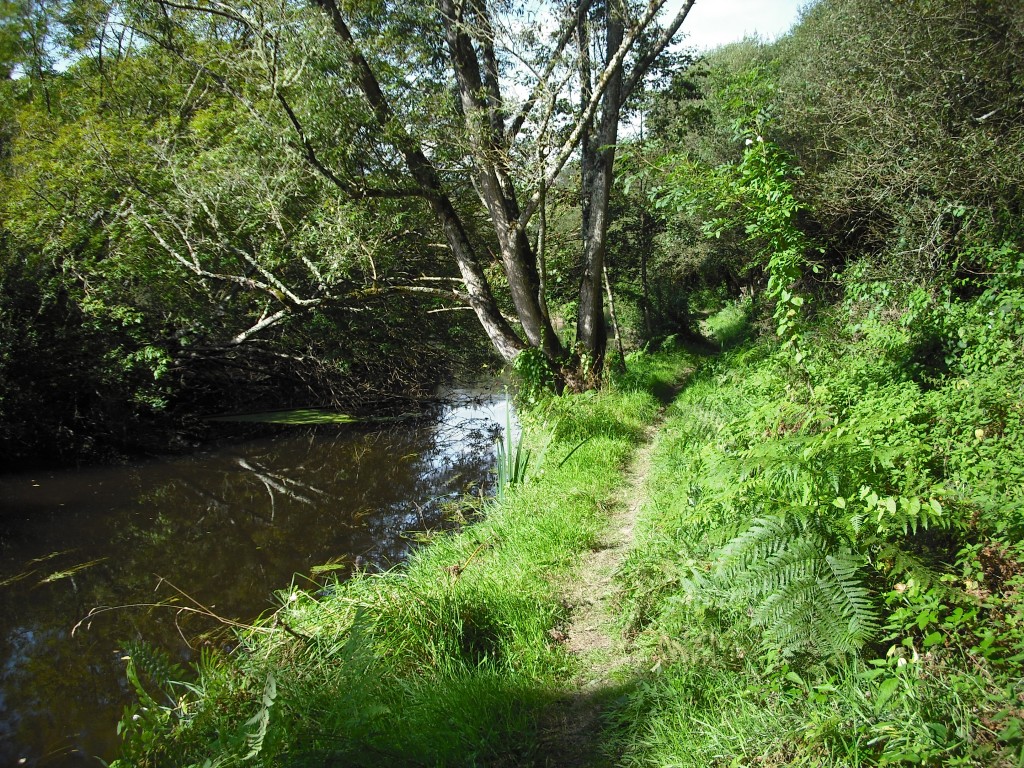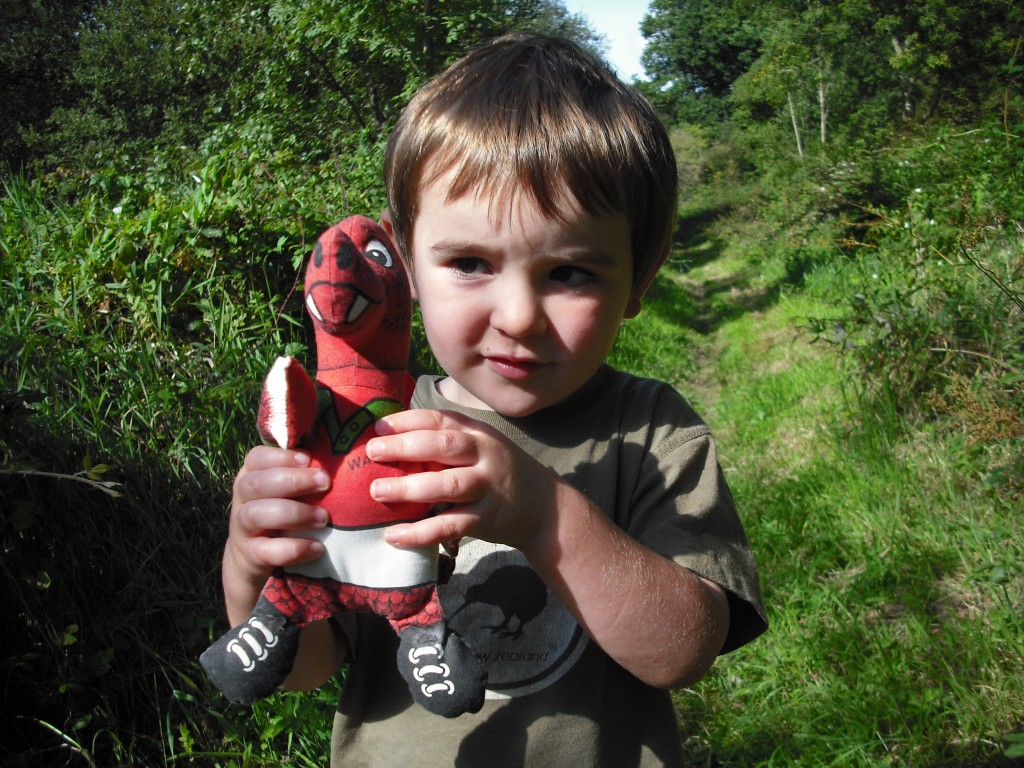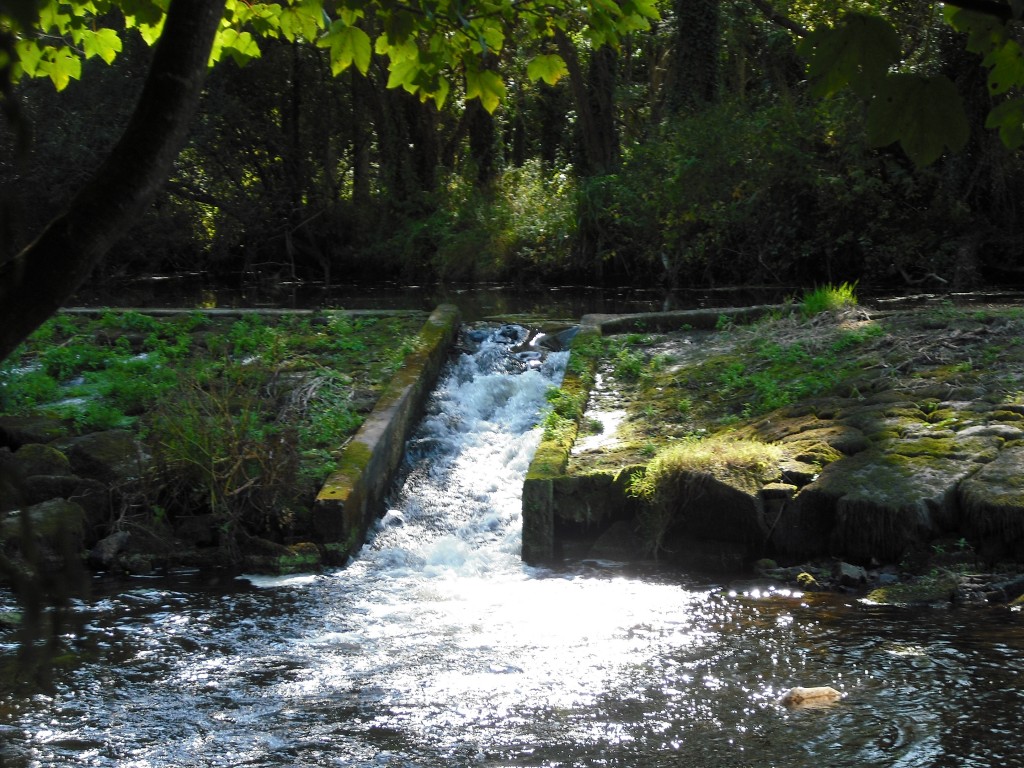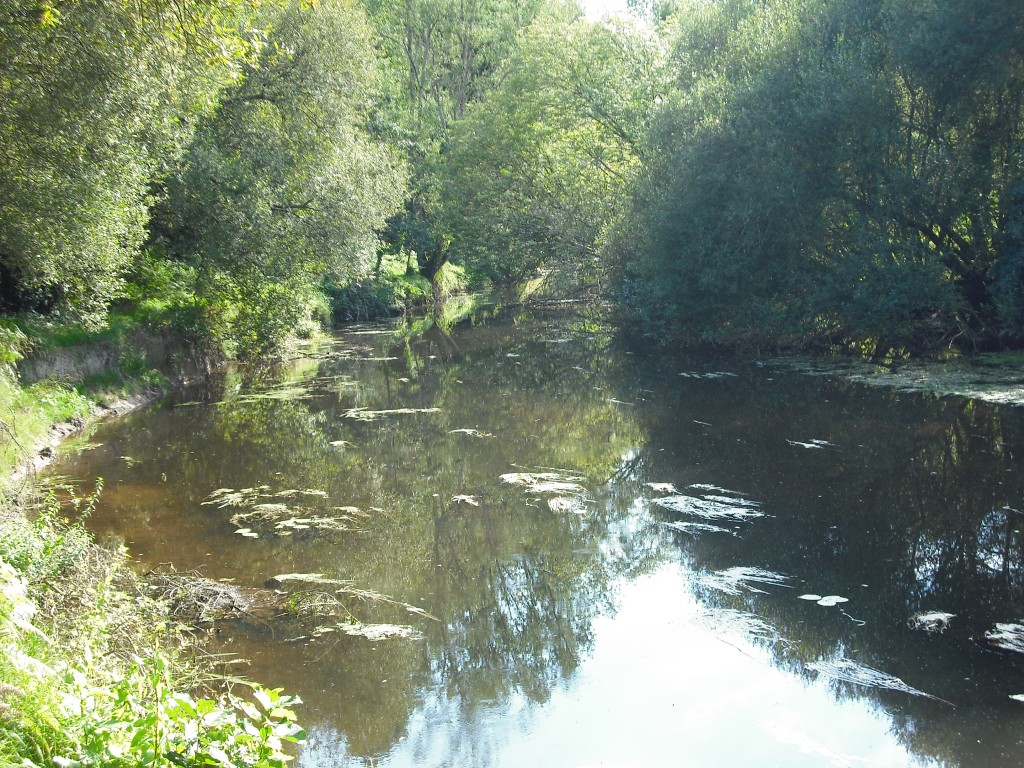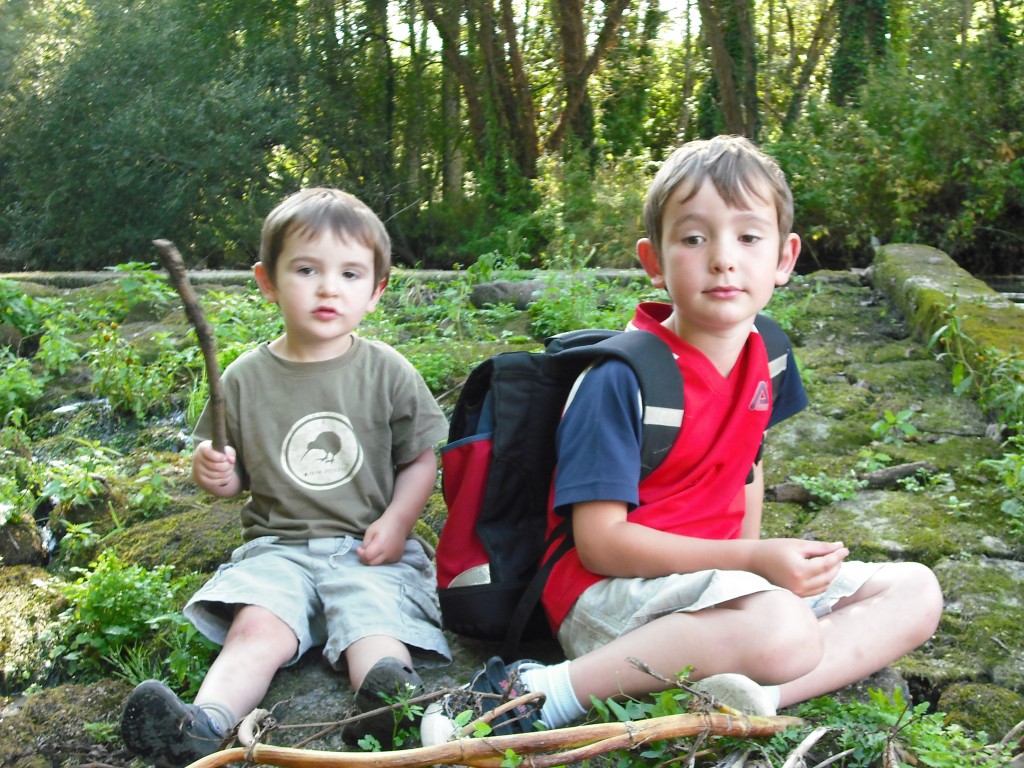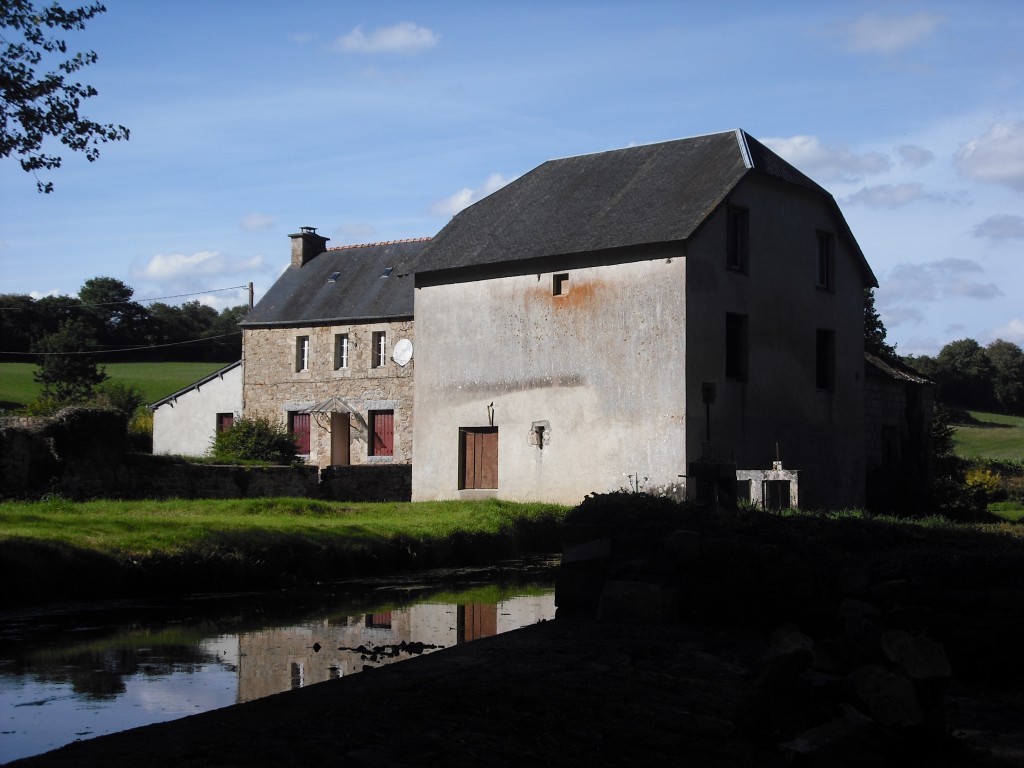In her book “Watching the English”, Kate Fox describes British greeting protocol in the following way:
As it is, our introductions and greetings tend to be uncomfortable, clumsy and inelegant. Among established friends, there is less awkwardness, although we are often still not quite sure what to do with our hands, or whether to hug or kiss.
We often feel the same here. French people are usually less awkward, and know what to do whether shake hands or kiss. Men shake hands with men, give la bise to ladies (when they know them already of course). Ladies give la bise to each other, and will shake a man’s hand if it is the first time they meet. Of course their are exceptions, and many subtleties. You have to be a native to know them all.
The best way to know what to do is to follow the flow and to let the others take the initiative.
Today, Jean-Baptiste was invited to have a snack at a friend’s house after school. We call this snack “goûter”. We were invited to come along. So, we arrived. I shook the husband’s hand, gave la bise to the mum (I hesitated at first, but we’ve met a couple of times already, and she clearly was going to). Esther gave la bise to both. Everything was fine. The husband left for work, so again, we shook hands and Esther gave la bise.
Everything was going well until we had to leave. What were we supposed to do? Do la bise, or just say thank you and go? The two little girls came to do la bise. But what about the mum? We opted for the very British, awkward kind of greeting, not knowing too much what to do. I suppose we should have done la bise, but who knows?
That’s what happen when you adapt to a new culture, learning new ways of doing things. The most embarrassing is that I am a Frenchman, and that I should know.






